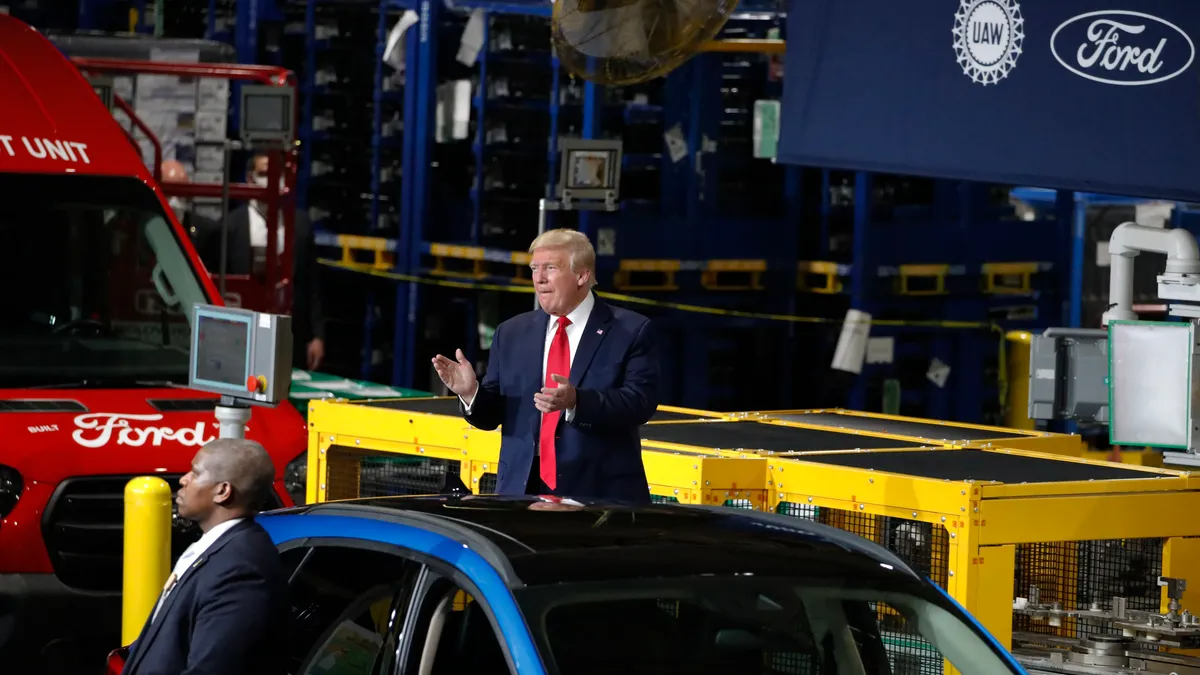
The Rising Impact of Tariffs on Auto Manufacturing
Recent developments in the automotive industry have shed light on the ongoing impact of tariffs, particularly for workers at Stellantis operations in Southeast Michigan. As 900 workers in Warren and Sterling Heights brace for temporary layoffs, the situation underscores a complex intersection of global trade policies and local economic realities.
Voices from the Workforce: Real Concerns and Experiences
Many employees, like Sam Belt and Kyle Chapman, have shared their frustration regarding the layoffs. "It’s tough out here. Makes it worse for me. Everybody is struggling now,” Belt expressed, echoing sentiments felt by many in the community. The specter of layoffs brings anxiety not only for those who may lose their jobs but also for their families and the local economy that relies heavily on the automotive industry. Chapman emphasized the general sentiment against layoffs, stating, "Never support a layoff. Always want to come to work and make money.”
The Bigger Picture: Understanding Tariff Dynamics
Retired worker Brian Pannebecker weighed in on the larger issue, linking these temporary layoffs to the broader context of tariffs affecting production in Canada and Mexico. He noted the irony of high labor costs potentially deterring companies from returning to U.S. operations, despite how beneficial it would be for local employment. “You’re hearing a lot of that bluster from the companies because they don’t want to move back here and produce at higher labor costs,” he remarked, suggesting that while immediate economic hits are painful, they could ultimately drive more significant long-term job security.
Future Projections: The Path Ahead for Michigan’s Auto Industry
Industry experts like John Walsh, CEO of the Michigan Manufacturers Association, highlight the nuanced effects of tariffs: while there’s hope they could restore jobs, other factors complicate matters. “Tariffs play a critical role, but we still have some uncertainty in front of us,” he remarked, indicating an unsettling road ahead for auto workers. This uncertainty only serves to heighten worries about factory operations linked to international production lines.
Connecting Workers and Consumers: The Local Economic Web
The ramifications of these layoffs extend beyond the workers directly affected. As Stellantis workers face uncertainty, local businesses tied to automotive operations—such as Detroit car dealerships—also face challenges that could affect their sales and operations. The automotive supply chain is interlinked, meaning that disruptions in one area can propagate through many others, impacting everything from Michigan electric vehicles to Detroit's car sales.
A Shared Concern: The Future of Electric Vehicles in Michigan
As the auto industry grapples with these immediate challenges, the future of electric vehicles offers both hope and urgency. With the push towards more environmentally friendly transport, there's a growing need for robust Michigan EV charging stations and continued investment into Michigan's hybrid cars. Adapting to this trend is not just a matter of corporate responsibility; it’s crucial for the survival of local jobs and innovation.
Conclusion: Call to Action for Community Support
In these trying times, it is vital for the metro Detroit community to support local initiatives that promote job retention and recovery in the automotive sector. Advocating for policies that foster growth in Michigan’s vehicle manufacturing and investing in public awareness surrounding Detroit transportation policy could benefit both workers and consumers alike. By prioritizing dialogues about economic resilience and job creation, we can work towards a more stable and prosperous future for all.
As these layers of complexity unfold, stakeholders from workers to consumers ought to remain engaged in conversations about Detroit's automotive landscape to foster a responsive and adaptive community environment.
 Add Row
Add Row  Add
Add 



 Add Row
Add Row  Add
Add 
Write A Comment